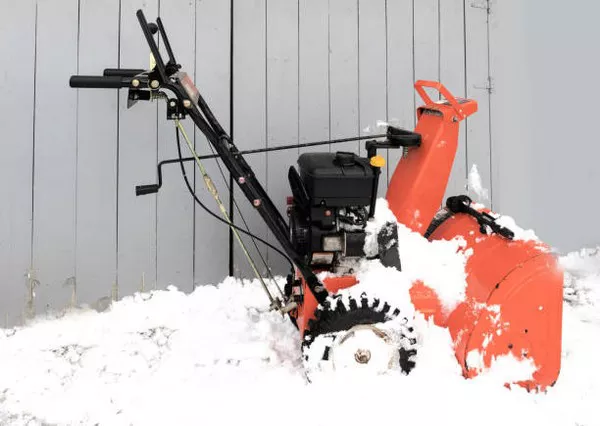As the chilly embrace of winter arrives, so does the inevitable chore of snow removal. Whether you’re a homeowner or a business owner, a reliable snow blower can be your best ally in tackling snow-covered driveways, walkways, and parking lots. However, with a myriad of options available in the market, selecting the right snow blower can be a daunting task. This article aims to provide you with a comprehensive guide to help you determine the type of snow blower you need based on your specific requirements.
Consider Your Snowfall Levels
The first step in choosing the right snow blower is to assess the average snowfall levels in your area. Snowfall can vary greatly depending on your location, ranging from light dustings to heavy, wet snow. Understanding the average snowfall will help you determine the power and capacity of the snow blower you require.
1. Single-Stage Snow Blowers:
Ideal for light snowfall, single-stage snow blowers are compact and easy to maneuver. They use an auger to scoop and propel the snow away in a single motion. These are suitable for areas with light snow accumulation, typically up to 6 inches deep. If you experience frequent snowfalls of this nature, a single-stage snow blower might be sufficient for your needs.
2. Two-Stage Snow Blowers:
For areas with moderate to heavy snowfall, a two-stage snow blower is a more suitable choice. These machines have an auger to break up the snow and a separate impeller to throw it out of the chute. Two-stage snow blowers can handle snow depths of up to 18 inches or more and are well-suited for larger driveways and commercial properties.
3. Three-Stage Snow Blowers:
If you reside in an area prone to heavy, wet snowfall or encounter extreme winter conditions, a three-stage snow blower might be the optimal solution. These advanced machines feature an accelerator in addition to the auger and impeller, allowing them to handle heavy and compacted snow with ease. Three-stage snow blowers are suitable for heavy-duty residential or commercial use.
See Also: Choosing the Right Snow Blower for Your Gravel Driveway
Assess Your Terrain and Area Size
The size of your property and the type of terrain also play a significant role in determining the appropriate snow blower. Consider the following factors:
1. Driveway Size:
If you have a small driveway or walkway, a compact and maneuverable snow blower would be a practical choice. Single-stage snow blowers are ideal for these spaces. However, for larger driveways or parking lots, a two-stage or three-stage snow blower will save you time and effort.
2. Surface Type:
The type of surface you need to clear also influences your snow blower choice. A single-stage snow blower is gentle on surfaces like concrete, asphalt, and pavers. In contrast, two-stage and three-stage snow blowers can handle uneven surfaces, gravel driveways, and tougher terrains more effectively.
3. Slope and Incline:
If your property has steep slopes or inclines, stability and traction become crucial factors. Look for models with adjustable skid shoes, aggressive tires, and a sturdy build to ensure safe operation on hilly terrain.
Power Source Options
Snow blowers come in various power sources, each with its own advantages and limitations. Consider your preferences and practicality when choosing a power source:
1. Gas-Powered Snow Blowers:
Gas-powered snow blowers offer robust performance and are suitable for heavy-duty snow removal. They provide greater mobility since they don’t require an electrical outlet. However, they do require regular maintenance, including fueling, oil changes, and occasional tune-ups.
2. Electric Corded Snow Blowers:
Electric corded snow blowers are lightweight and easy to start. They are best suited for smaller areas with light to moderate snowfall. Keep in mind that their range is limited by the length of the power cord and may not be suitable for larger properties.
3. Battery-Powered Snow Blowers:
Battery-powered snow blowers offer the advantage of cordless operation and are environmentally friendly. They are suitable for moderate snowfall and provide the convenience of not dealing with cords or fuel. However, battery life and power output may limit their effectiveness for heavy snow removal.
Additional Features to Consider
When evaluating snow blower options, consider the following features to enhance usability and performance:
1. Clearing Width and Intake Height:
The clearing width determines how much snow the blower can clear in a single pass, while the intake height determines the maximum snow depth it can handle. Choose a snow blower with appropriate dimensions for your property size and snowfall levels.
2. Chute Control:
A rotating chute allows you to direct the thrown snow in the desired direction. Look for models with adjustable chute controls for greater convenience during operation.
3. Electric Start:
An electric start feature eliminates the need for manual pulling, making it easier to start the snow blower, especially in cold conditions.
4. Heated Handles:
Some snow blowers come equipped with heated handles to keep your hands warm and comfortable during operation.
5. Headlight:
A built-in headlight is a useful feature for early morning or late-night snow removal, ensuring visibility and safety.
Conclusion
Choosing the right snow blower is a decision that should be based on careful consideration of your specific needs. By evaluating factors such as snowfall levels, property size, terrain, power source, and additional features, you can make an informed choice that will save you time and effort during the winter months. Remember that investing in a reliable snow blower tailored to your requirements is a smart decision that will help you conquer the snow and keep your property safe and accessible all season long.

